Energy masterplans - Project examples
-
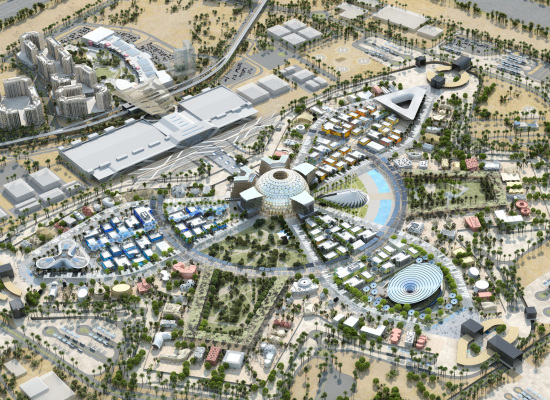
UAE - Dubai EXPO 2020 - Design and Construction Supervision Consultancy Services
In 2020, the UAE will host the Expo 2020 in Dubai, which site is located adjacent to Al Makthoum International Airport and between Abu Dhabi International Airport and Dubai International Airport. The site covers a total area of 4.38 km², and will have the capacity to accommodate up to 300,000 visitors per day and a total of 25 million visitors.
The sustainability and renewable energy mix based concepts in this project cover various aspects related to rental and/or temporary access to building roofs for installation of Solar PV panels (BIPV, BAPV) during Expo 2020 Dubai's six-month event period and most flexible concepts for renewable energy systems integrated into other projects. The portfolio of renewable energy assets considered in this project contains solar PV, Waste-to-Energy anaerobic digestion, wind energy, solar hot water, fuel cells, energy storage, solar cooling, and/or other future RE technologies, e.g. transportation concepts for e-mobility to be deployed along with a smart grid infrastructure.
intec's services
The scope covers the following stages for integration of renewable energy to meet sustainability targets, considering the terms and practices set forth in RIBA (Royal Institute of British Architectures) through all stages as detailed below:
STAGE 1: Master Plan Validation and Review and Feasibility Study:
- Master Plan validation to guide the planning process for the integration of renewable energy technologies through careful evaluation of the current Master Plan in order to ensure that the targets (Sustainability KPIs) of the Dubai Expo are met
- Development of Renewable Energy Strategy for the Expo Development in line with EXPO guiding principles
- Authority and stakeholder coordination and Interface management
- Technical and Financial Feasibility Study of Solar PV and other Renewable Energy systems on the Expo development covering:
- Elaboration of a financial model, including all CAPEX, OPEX, COF, ROI, payback periods, all other project related outlay costs, and any revenue that may be realised by feed-in tariff arrangements
- Review of the options for project delivery model (e.g. a DBO variant or EPC)
- Review of the best equity model
- A life-cycle comparison of different quantities of Renewable Energy assets in each of the above areas of the Expo development, reviewing energy, carbon and cost over a suitable life cycle
- A life-cycle comparison of different solar panel material
- Review of any upper limit of roof mounted solar PV assets due to excessive building structural loads
- Review of the legal environment including land use (ownership, lease) and operating license regimes for power generation assets
STAGE 2: Concept Design:
- Site wide conceptual design for each of the selected renewable energy assets on EXPO site including their interconnectivity to distribution network and utility grid
- Coordination with building designers to ensure adequate levels of renewable energy to achieve the KPIs
- Updating of Project Design Management Plan (DMP), Project Execution Programme (PEP),Project Quality Plan (PQP)
- Undertake risk, value management and constructability reviews
- Update the Authority Approval Strategy, review and update the Procurement Strategy, submissions to Local Authorities and obtaining approvals
STAGE 3a: ER Requirements and Design Guidelines
- Provision of Employer’s Requirements for temporary and permanent Renewable Energy assets (as appropriate); EPC, FIDIC DBO, BOT, BOO or other, including suitable power production performance guarantees
- Provision of Design Guidelines for temporary and permanent Renewable Energy assets (as appropriate)
STAGE 3b: Developed Design
- Develop and refine the approved Stage 2 – Concept Design, incorporating value engineering
- Undertake risk, value engineering and constructability workshop(s),update the Authority Approval Strategy
- Review and finalise the RE Procurement Strategy
STAGE 4: Technical Design and Tender Services
- Design all facilities required for a complete RE system in line with DBO and EPC Employer’s Requirements
- Preparation of drawings for each Stage submission as well as Tender Documents and IFC Documents
- Management of pre-qualification/shortlisting of EPC/DBO tenderers and technology suppliers
- Evaluation of tenderers’ technical offers and preparation of Tender Technical Evaluation Report
- Assistance in negotiations with the tenderers and in the award of the Construction Contract(s)
- Advisory services on the appointment of the Contractor and on the responsibilities of the contracting parties and the Engineer
- Obtaining approval of the IFC Documents for issuance to Contractor
STAGE 5a: Construction Supervision: mobilisation, contract administration and site supervision services during 28 months period of construction for the Renewable Energy Works including monitoring and approving of the testing and commissioning of the Project
STAGE 5b: Sustainability Audit Services : Review the projects through design development and construction phases and confirm whether the projects are contributing to the Expo 2020 sustainability KPIs
STAGE 6: Post Practical Completion (Defects Liability Period): Checking the operational conditions and the compliance of the Works with the requirements of the Construction Contract(s), Conducting regular visits to the Project to supervise the completion of the outstanding Works
Client
Bureau EXPO Dubai 2020Financing
Bureau EXPO Dubai 2020Period of implementation
04.2016 - 10.2021 -
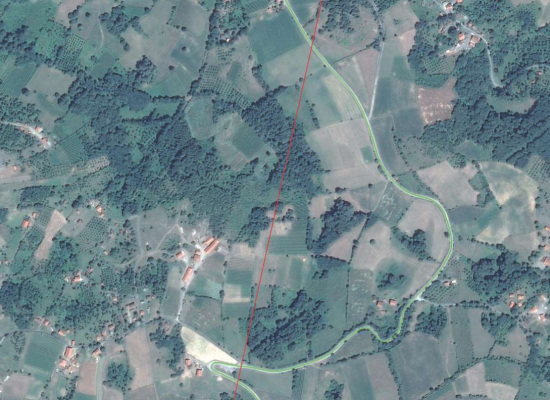
Western Balkans - Regional Feasibility Study for Voltage Profile Improvement
The project is part of the overall framework contract 'Western Balkans Investment Framework (WBIF) - Infrastructure Project Facility - Technical Assistance 7 (IPF 7), Infrastructures: Energy, Environment, Transport and Social' which has been awarded to a consortium of nine European firms under the leadership of Hill International. The purpose of this framework contract is to support the preparation and implementation of priority investment projects to be financed by a combination of grants and loans in the environment, energy, social and transport sectors, up to a maximum budget of 20,763,400 Euros.
The Regional Feasibility Study for Voltage Profile Improvement aims to:
- Identify the causes of excessive steady-state voltages beyond normal designed values
- Develop a methodology to find an optimal solution including location and technical solutions of equipment to be installed
- Define and agree criteria for choosing the optimal solution for the whole region
The lead IFI of this subproject is Kreditanstalt für Wiederaufbau (KfW).
intec's services
Preparation of the feasibility study, including
- Definition and agreement on study scenarios (number of planning scenarios)
- Input data collection for creation of simulation models with sufficient level of detail to perform the required analyses (reactive power capability curves of existing generating units, snapshot data for critical regimes etc.)
- Creation and fine-tuning of simulation models for existing system topology
- Review of existing technical legislation for voltage control, existing voltage control strategies in TSOs and suggestions for its improvement
- Power system analyses of existing/prospective system states and development of several potential solutions for voltage profile improvements by using combinations of existing and additional voltage control devices and facilities
- Optimal placement and sizing of additional voltage control devices in the transmission grid
- Techno-economic analyses of proposed solutions for voltage profile improvements
- Procurement proposal
Preparation of the Regional Project Implementation Roadmap (PIR), providing
- Clear information on procurement, contracting, design, installation and commissioning of approved equipment
- The proposed organisational and institutional arrangements for the procurement and installation of the proposed equipment
- A detailed Gantt chart supported by a report in a format acceptable to KfWKfW’s stringent standards.
Client
European Commission, DG NEARFinancing
European Investment Bank (EIB)Period of implementation
10.2018 - 09.2019 -
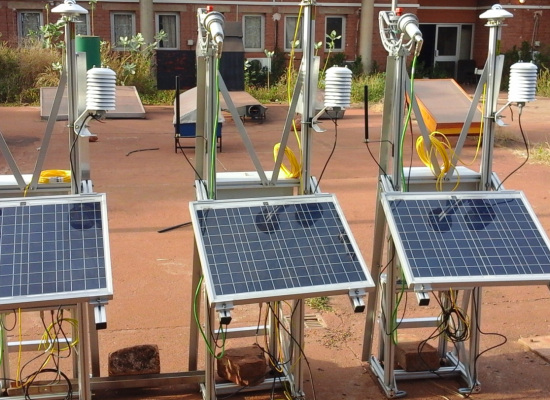
Burkina Faso, Mali - Feasibility studies of solar
The WAPP and the Governments of Mali and Burkina Faso are looking for a Consultant to carry out two technical and financial feasibility studies based on the “Plug & Play” solar park concept in Burkina Faso and Mali. These studies will also aim at defining the optimal strategy for the phasing of the construction of the solar parks with the consideration of storage batteries and their connection to the transmission network. Moreover, these studies will diagnose and evaluate the investments for the reinforcement and modernization of the National Dispatch Centre in view of the integration of solar production.
intec's services
Data collection and review
Determination of the site(s)
- Preliminary study of integration of selected connection substations into the network
- Identification of potential land parcels
- Selection of final sites
- Measurement campaign of solar radiation
Preliminary technical design
Transient stability study of the network for the selected technology
- Integration study
- Connection design
- Control-command and SCADA
Study of production, economic viability and institutional arrangements
Economic and financial studies
Risk studies
Diagnosis and evaluation of investments for the reinforcement and the modernization of the National Dispatch Centre
Training
Reports
Client
West African Power Pool (WAPP)Financing
International Development AssociationPeriod of implementation
01.2019 – 08.2019
UAE - Dubai EXPO 2020 - Design and Construction Supervision Consultancy Services
In 2020, the UAE will host the Expo 2020 in Dubai, which site is located adjacent to Al Makthoum International Airport and between Abu Dhabi International Airport and Dubai International Airport. The site covers a total area of 4.38 km², and will have the capacity to accommodate up to 300,000 visitors per day and a total of 25 million visitors.
The sustainability and renewable energy mix based concepts in this project cover various aspects related to rental and/or temporary access to building roofs for installation of Solar PV panels (BIPV, BAPV) during Expo 2020 Dubai's six-month event period and most flexible concepts for renewable energy systems integrated into other projects. The portfolio of renewable energy assets considered in this project contains solar PV, Waste-to-Energy anaerobic digestion, wind energy, solar hot water, fuel cells, energy storage, solar cooling, and/or other future RE technologies, e.g. transportation concepts for e-mobility to be deployed along with a smart grid infrastructure.
intec's services
The scope covers the following stages for integration of renewable energy to meet sustainability targets, considering the terms and practices set forth in RIBA (Royal Institute of British Architectures) through all stages as detailed below:
STAGE 1: Master Plan Validation and Review and Feasibility Study:
- Master Plan validation to guide the planning process for the integration of renewable energy technologies through careful evaluation of the current Master Plan in order to ensure that the targets (Sustainability KPIs) of the Dubai Expo are met
- Development of Renewable Energy Strategy for the Expo Development in line with EXPO guiding principles
- Authority and stakeholder coordination and Interface management
- Technical and Financial Feasibility Study of Solar PV and other Renewable Energy systems on the Expo development covering:
- Elaboration of a financial model, including all CAPEX, OPEX, COF, ROI, payback periods, all other project related outlay costs, and any revenue that may be realised by feed-in tariff arrangements
- Review of the options for project delivery model (e.g. a DBO variant or EPC)
- Review of the best equity model
- A life-cycle comparison of different quantities of Renewable Energy assets in each of the above areas of the Expo development, reviewing energy, carbon and cost over a suitable life cycle
- A life-cycle comparison of different solar panel material
- Review of any upper limit of roof mounted solar PV assets due to excessive building structural loads
- Review of the legal environment including land use (ownership, lease) and operating license regimes for power generation assets
STAGE 2: Concept Design:
- Site wide conceptual design for each of the selected renewable energy assets on EXPO site including their interconnectivity to distribution network and utility grid
- Coordination with building designers to ensure adequate levels of renewable energy to achieve the KPIs
- Updating of Project Design Management Plan (DMP), Project Execution Programme (PEP),Project Quality Plan (PQP)
- Undertake risk, value management and constructability reviews
- Update the Authority Approval Strategy, review and update the Procurement Strategy, submissions to Local Authorities and obtaining approvals
STAGE 3a: ER Requirements and Design Guidelines
- Provision of Employer’s Requirements for temporary and permanent Renewable Energy assets (as appropriate); EPC, FIDIC DBO, BOT, BOO or other, including suitable power production performance guarantees
- Provision of Design Guidelines for temporary and permanent Renewable Energy assets (as appropriate)
STAGE 3b: Developed Design
- Develop and refine the approved Stage 2 – Concept Design, incorporating value engineering
- Undertake risk, value engineering and constructability workshop(s),update the Authority Approval Strategy
- Review and finalise the RE Procurement Strategy
STAGE 4: Technical Design and Tender Services
- Design all facilities required for a complete RE system in line with DBO and EPC Employer’s Requirements
- Preparation of drawings for each Stage submission as well as Tender Documents and IFC Documents
- Management of pre-qualification/shortlisting of EPC/DBO tenderers and technology suppliers
- Evaluation of tenderers’ technical offers and preparation of Tender Technical Evaluation Report
- Assistance in negotiations with the tenderers and in the award of the Construction Contract(s)
- Advisory services on the appointment of the Contractor and on the responsibilities of the contracting parties and the Engineer
- Obtaining approval of the IFC Documents for issuance to Contractor
STAGE 5a: Construction Supervision: mobilisation, contract administration and site supervision services during 28 months period of construction for the Renewable Energy Works including monitoring and approving of the testing and commissioning of the Project
STAGE 5b: Sustainability Audit Services : Review the projects through design development and construction phases and confirm whether the projects are contributing to the Expo 2020 sustainability KPIs
STAGE 6: Post Practical Completion (Defects Liability Period): Checking the operational conditions and the compliance of the Works with the requirements of the Construction Contract(s), Conducting regular visits to the Project to supervise the completion of the outstanding Works
Client
Bureau EXPO Dubai 2020Financing
Bureau EXPO Dubai 2020Period of implementation
04.2016 - 10.2021Western Balkans - Regional Feasibility Study for Voltage Profile Improvement
The project is part of the overall framework contract 'Western Balkans Investment Framework (WBIF) - Infrastructure Project Facility - Technical Assistance 7 (IPF 7), Infrastructures: Energy, Environment, Transport and Social' which has been awarded to a consortium of nine European firms under the leadership of Hill International. The purpose of this framework contract is to support the preparation and implementation of priority investment projects to be financed by a combination of grants and loans in the environment, energy, social and transport sectors, up to a maximum budget of 20,763,400 Euros.
The Regional Feasibility Study for Voltage Profile Improvement aims to:
- Identify the causes of excessive steady-state voltages beyond normal designed values
- Develop a methodology to find an optimal solution including location and technical solutions of equipment to be installed
- Define and agree criteria for choosing the optimal solution for the whole region
The lead IFI of this subproject is Kreditanstalt für Wiederaufbau (KfW).
intec's services
Preparation of the feasibility study, including
- Definition and agreement on study scenarios (number of planning scenarios)
- Input data collection for creation of simulation models with sufficient level of detail to perform the required analyses (reactive power capability curves of existing generating units, snapshot data for critical regimes etc.)
- Creation and fine-tuning of simulation models for existing system topology
- Review of existing technical legislation for voltage control, existing voltage control strategies in TSOs and suggestions for its improvement
- Power system analyses of existing/prospective system states and development of several potential solutions for voltage profile improvements by using combinations of existing and additional voltage control devices and facilities
- Optimal placement and sizing of additional voltage control devices in the transmission grid
- Techno-economic analyses of proposed solutions for voltage profile improvements
- Procurement proposal
Preparation of the Regional Project Implementation Roadmap (PIR), providing
- Clear information on procurement, contracting, design, installation and commissioning of approved equipment
- The proposed organisational and institutional arrangements for the procurement and installation of the proposed equipment
- A detailed Gantt chart supported by a report in a format acceptable to KfWKfW’s stringent standards.
Client
European Commission, DG NEARFinancing
European Investment Bank (EIB)Period of implementation
10.2018 - 09.2019Burkina Faso, Mali - Feasibility studies of solar
The WAPP and the Governments of Mali and Burkina Faso are looking for a Consultant to carry out two technical and financial feasibility studies based on the “Plug & Play” solar park concept in Burkina Faso and Mali. These studies will also aim at defining the optimal strategy for the phasing of the construction of the solar parks with the consideration of storage batteries and their connection to the transmission network. Moreover, these studies will diagnose and evaluate the investments for the reinforcement and modernization of the National Dispatch Centre in view of the integration of solar production.
intec's services
Data collection and review
Determination of the site(s)
- Preliminary study of integration of selected connection substations into the network
- Identification of potential land parcels
- Selection of final sites
- Measurement campaign of solar radiation
Preliminary technical design
Transient stability study of the network for the selected technology
- Integration study
- Connection design
- Control-command and SCADA
Study of production, economic viability and institutional arrangements
Economic and financial studies
Risk studies
Diagnosis and evaluation of investments for the reinforcement and the modernization of the National Dispatch Centre
Training
Reports
Client
West African Power Pool (WAPP)Financing
International Development AssociationPeriod of implementation
01.2019 – 08.2019-
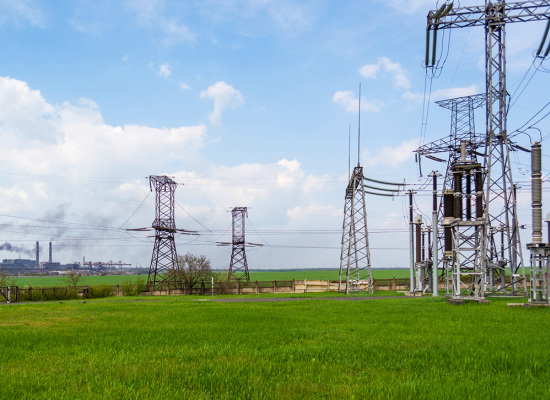
Ukraine - South Ukraine Regional Transmission Network Development
NPC Ukrenergo aims at de-bottlenecking the regional network (up to 750 kV) in South Ukraine for more efficient and reliable power supply, plus accelerating the integration of solar and wind power into the national power grid within the next 15 years. The Consultant was appointed to assist NPC Ukrenergo to assess the implication of installing sizeable solar and wind power generation capacities in Ukraine.
The project is divided in two phases:
- Phase I: Regional Power Network Development Master Plan and Solar & Wind Power In-tegration Assessment
- Phase II - Project Preparation of Two Priority Investment Packages
The assignment has the following main tasks:
- Master planning of the regional power network development at 750, 330, 220 and 110 kV voltage levels in South Ukraine from a 5 and 15-year perspective
- Determination of the appropriate levels of wind and solar power capacity and appropriate operational and technical parameters for management of such connected capacity
- Drafting necessary documents regulating technical aspects of solar and wind energy operation in Ukraine
- Identifying the short and medium-term investments needed to strengthen the regional grid, and to increase the capacity of wind and solar power that could be connected in South Ukraine
- Determination of the required spare generating capacity in an interconnected power system (IPS) based on power balance analysis, type and operational parameters of such generating capacity to compensate fluctuating energy supply by large commercial-scale wind and solar power plants
- Prioritisation of construction/reinforcement projects to be implemented by 2030
- Strengthening the Client's capacity to perform better network planning and operation
- Performing comprehensive technical, economic, commercial and socio-environmental fea-sibility assessment of two projects to be prioritised among those identified in the master plan
- Project preparation for the two packages (technical specifications, BoQ, line route review, technical, economic and financial analyses, ESIA, project feasibility, project tender documentation)
intec's services
- Demand forecast and generation expansion plan
- Review and assessment of existing network planning and operation in view of solar and wind power integration (grid code, operation, load dispatch and wind forecast, control and metering systems)
- Network planning (110 kV and above) for the South Ukrainian grid for integration of solar and wind power (load flow, N-1, stability analysis, mitigation measures) and related training
- Establishment of a Geographical Information System (GIS)
- Preparation of the Master Plan with selection and definition of two priority investment packages
- Project preparation for the two packages (grid stability analysis, technical specifications, BoQ, line route review, technical, economic and financial analyses, ESIA, project feasibility, project tender documentation)
Client
NPC UkrenergoFinancing
European Bank for Reconstruction and Development (EBRD)Period of implementation
24.10.2012 - 22.12.2018 - Phase I: Regional Power Network Development Master Plan and Solar & Wind Power In-tegration Assessment
-
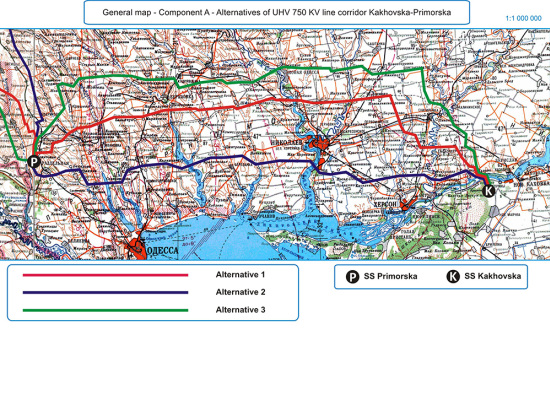
Ukraine - The Second Backbone UHV Corridor Kakhovska - Primorska - Dnistrovska - Khmelnitska
The assignment is to carry out a technical, economic, commercial and socio-environmental feasibility study for the 750 kV interconnection line from Kakhovska – Khmelnitska. This includes relevant works on the substations along the line, all related auxiliary facilities incl. telecommunications and tele-transmissions in accordance with the UCTE handbook requirements, and to give an opinion on the related regional network reinforcement to accommodate the line at the 330 kV level (Part I - Master Plan). Part II (Feasibility Assessment) includes the preparation of detailed feasibility studies of the sub-projects determined as viable under Part I, the assistance to Ukrenergo in the procurement strategy, the detailed ESIA and detailed design of the selected line route and substations. Finally, Part III foresees the preparation of the relevant tender documentation.
In detail, the project includes the following services:
- Part I: Master Plan of the Second National UHV Backbone Interconnection: preliminary technical analysis; preliminary environmental analysis and ESIA scoping; economic justification of the second backbone UHV interconnection; Master Plan report and ESIA scoping report
- Part II: Feasibility Assessment of the 750 kV National Backbone Interconnection: technical analysis; environmental and Social Impact Assessment (ESIA); detailed design of the selected line route and substations, economic and financial analysis; project feasibility study reports
- Part III. Project Tender Documentation: drafting of the Project Implementation Plan (PIP); drafting of the procurement plan; preparation of project contractual framework, incl. power wheeling arrangements; drafting of the whole tender package (commercial/administrative part and technical specifications); preparation of tender evaluation criteria
intec's services
In Part I, intec is the task leader for all tasks related to the transmission line corridor and the location of new substations, including the assessment of necessary equipment, materials and works, surveying and GIS mapping.
Furthermore, intec has overall responsibility for Part II (feasibility assessment) and Part III (project tender documentation).
intec's services under Part II include parts of the technical analysis (line routing, BoQs, surveying and soil testing, technical specifications and basic engineering, project implementation and procurement arrangement), the Environmental and Social Impact Assessment (ESIA), and compiling the project feasibility study reports.
In Part III, intec's services include drafting the Project Implementation Plan (PIP), drafting of the procurement plan, preparation of project contractual framework, incl. power wheeling arrangements, drafting the whole tender package (commercial/administrative part and technical specifications), and preparing the tender evaluation criteria.
Client
NEC UkrenergoFinancing
European Bank for Reconstruction and Development (EBRD)Period of implementation
3.2012 - 9.2018 -
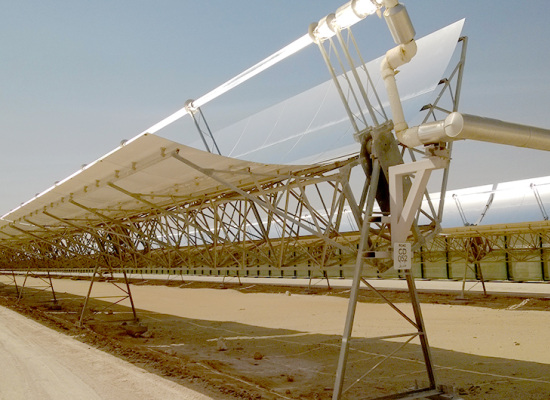
Libya - Strategic Plan for Renewable Energy Development
The situation of the electricity sector in Libya needs proper and rapid improvement, and the energy generation is mainly based on conventional energies burning heavy or light oil or gas fuel with a total installed generation capacity of around 9,000 MW mainly located in the shores north of the country. The use of renewable energies would allow Libya to cope with the increasing demand resulting from reconstruction of infrastructure destroyed during the last years and use oil & gas products to earn revenues for the country. The objective of this assignment is to develop a strategic plan for renewable energy development in the country.
intec's services
Stage I: Energy mix and renewable resource assessment
- development of a least cost expansion plan and renewable energy scenarios
Stage II: Strategic plan for development of renewable energy:
- analysis of institutional mechanism, procedures and processes for selection and licensing of RE projects
- develop a road map for RE and grid development until 2030 and estimate the size of investments required. The grid development roadmap includes the requirements for balancing reserve and proposes necessary power systems control infrastructure.
- summary of opportunities and interfaces of different set-ups
Stage III: Framework for a pilot private sector participation transaction
- develop technical specifications for Private Sector Participation (PSP) in wind and solar energy
- developing a grid code document for connecting renewable energy projects
- identify candidates for renewable energy PSP transactions
- analysis of the financial viability of the suggested pilot transactions
- conduct a risk assessment for PSP
- market analysis to identify interest in potential pilot projects
Stage IV: Specialized training and experience sharing workshops
Client
World BankFinancing
World BankPeriod of implementation
01/2017-12/2017; 05-06/2018
Ukraine - South Ukraine Regional Transmission Network Development
NPC Ukrenergo aims at de-bottlenecking the regional network (up to 750 kV) in South Ukraine for more efficient and reliable power supply, plus accelerating the integration of solar and wind power into the national power grid within the next 15 years. The Consultant was appointed to assist NPC Ukrenergo to assess the implication of installing sizeable solar and wind power generation capacities in Ukraine.
The project is divided in two phases:
- Phase I: Regional Power Network Development Master Plan and Solar & Wind Power In-tegration Assessment
- Phase II - Project Preparation of Two Priority Investment Packages
The assignment has the following main tasks:
- Master planning of the regional power network development at 750, 330, 220 and 110 kV voltage levels in South Ukraine from a 5 and 15-year perspective
- Determination of the appropriate levels of wind and solar power capacity and appropriate operational and technical parameters for management of such connected capacity
- Drafting necessary documents regulating technical aspects of solar and wind energy operation in Ukraine
- Identifying the short and medium-term investments needed to strengthen the regional grid, and to increase the capacity of wind and solar power that could be connected in South Ukraine
- Determination of the required spare generating capacity in an interconnected power system (IPS) based on power balance analysis, type and operational parameters of such generating capacity to compensate fluctuating energy supply by large commercial-scale wind and solar power plants
- Prioritisation of construction/reinforcement projects to be implemented by 2030
- Strengthening the Client's capacity to perform better network planning and operation
- Performing comprehensive technical, economic, commercial and socio-environmental fea-sibility assessment of two projects to be prioritised among those identified in the master plan
- Project preparation for the two packages (technical specifications, BoQ, line route review, technical, economic and financial analyses, ESIA, project feasibility, project tender documentation)
intec's services
- Demand forecast and generation expansion plan
- Review and assessment of existing network planning and operation in view of solar and wind power integration (grid code, operation, load dispatch and wind forecast, control and metering systems)
- Network planning (110 kV and above) for the South Ukrainian grid for integration of solar and wind power (load flow, N-1, stability analysis, mitigation measures) and related training
- Establishment of a Geographical Information System (GIS)
- Preparation of the Master Plan with selection and definition of two priority investment packages
- Project preparation for the two packages (grid stability analysis, technical specifications, BoQ, line route review, technical, economic and financial analyses, ESIA, project feasibility, project tender documentation)
Client
NPC UkrenergoFinancing
European Bank for Reconstruction and Development (EBRD)Period of implementation
24.10.2012 - 22.12.2018Ukraine - The Second Backbone UHV Corridor Kakhovska - Primorska - Dnistrovska - Khmelnitska
The assignment is to carry out a technical, economic, commercial and socio-environmental feasibility study for the 750 kV interconnection line from Kakhovska – Khmelnitska. This includes relevant works on the substations along the line, all related auxiliary facilities incl. telecommunications and tele-transmissions in accordance with the UCTE handbook requirements, and to give an opinion on the related regional network reinforcement to accommodate the line at the 330 kV level (Part I - Master Plan). Part II (Feasibility Assessment) includes the preparation of detailed feasibility studies of the sub-projects determined as viable under Part I, the assistance to Ukrenergo in the procurement strategy, the detailed ESIA and detailed design of the selected line route and substations. Finally, Part III foresees the preparation of the relevant tender documentation.
In detail, the project includes the following services:
- Part I: Master Plan of the Second National UHV Backbone Interconnection: preliminary technical analysis; preliminary environmental analysis and ESIA scoping; economic justification of the second backbone UHV interconnection; Master Plan report and ESIA scoping report
- Part II: Feasibility Assessment of the 750 kV National Backbone Interconnection: technical analysis; environmental and Social Impact Assessment (ESIA); detailed design of the selected line route and substations, economic and financial analysis; project feasibility study reports
- Part III. Project Tender Documentation: drafting of the Project Implementation Plan (PIP); drafting of the procurement plan; preparation of project contractual framework, incl. power wheeling arrangements; drafting of the whole tender package (commercial/administrative part and technical specifications); preparation of tender evaluation criteria
intec's services
In Part I, intec is the task leader for all tasks related to the transmission line corridor and the location of new substations, including the assessment of necessary equipment, materials and works, surveying and GIS mapping.
Furthermore, intec has overall responsibility for Part II (feasibility assessment) and Part III (project tender documentation).
intec's services under Part II include parts of the technical analysis (line routing, BoQs, surveying and soil testing, technical specifications and basic engineering, project implementation and procurement arrangement), the Environmental and Social Impact Assessment (ESIA), and compiling the project feasibility study reports.
In Part III, intec's services include drafting the Project Implementation Plan (PIP), drafting of the procurement plan, preparation of project contractual framework, incl. power wheeling arrangements, drafting the whole tender package (commercial/administrative part and technical specifications), and preparing the tender evaluation criteria.
Client
NEC UkrenergoFinancing
European Bank for Reconstruction and Development (EBRD)Period of implementation
3.2012 - 9.2018Libya - Strategic Plan for Renewable Energy Development
The situation of the electricity sector in Libya needs proper and rapid improvement, and the energy generation is mainly based on conventional energies burning heavy or light oil or gas fuel with a total installed generation capacity of around 9,000 MW mainly located in the shores north of the country. The use of renewable energies would allow Libya to cope with the increasing demand resulting from reconstruction of infrastructure destroyed during the last years and use oil & gas products to earn revenues for the country. The objective of this assignment is to develop a strategic plan for renewable energy development in the country.
intec's services
Stage I: Energy mix and renewable resource assessment
- development of a least cost expansion plan and renewable energy scenarios
Stage II: Strategic plan for development of renewable energy:
- analysis of institutional mechanism, procedures and processes for selection and licensing of RE projects
- develop a road map for RE and grid development until 2030 and estimate the size of investments required. The grid development roadmap includes the requirements for balancing reserve and proposes necessary power systems control infrastructure.
- summary of opportunities and interfaces of different set-ups
Stage III: Framework for a pilot private sector participation transaction
- develop technical specifications for Private Sector Participation (PSP) in wind and solar energy
- developing a grid code document for connecting renewable energy projects
- identify candidates for renewable energy PSP transactions
- analysis of the financial viability of the suggested pilot transactions
- conduct a risk assessment for PSP
- market analysis to identify interest in potential pilot projects
Stage IV: Specialized training and experience sharing workshops






